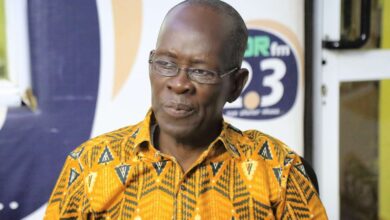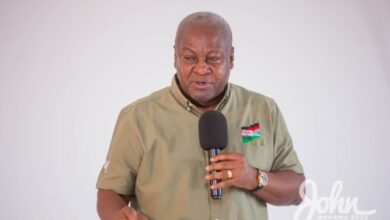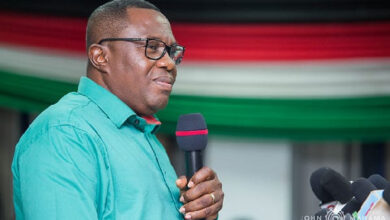
The Supreme Court (SC) on Monday unanimously ordered that all suits relating to disqualification of all 2016 Presidential Nominees before the High Courts be put on hold.
The seven member panel said: “We find it necessary and expedient to make further order to stay all court proceedings pending in the various High Courts against the applicant (Electoral Commission) by some of the disqualified Presidential Candidates on the same issue of having been denied a hearing to enable the EC to carry out its mandate in line with these orders”.
The SC also ordered that the EC extend nomination period for all disqualified applicants to Tuesday, November 8.
“It is hereby ordered that the applicant extends the nomination period from today Monday, November 7, 2016 to the close of working day of Tuesday November 8, 2016.
“Wherefore we accordingly stay all such proceedings in the High Courts,” the Court said.
The SC held that “the applicant should invite the interested party and all the presidential candidates who were able to submit their nomination papers by the close of the nomination day on September 30, 2016 and were disqualified without a hearing and give them hearing within the extended period.
According to the Court that was to “afford candidates, the opportunity to comply with regulation 9 (2) of the Public Election Regulation, 2016 (CI 94).”
The Court opined that their direction was to enable the Commission give fair hearing to all parties who have been disqualified including the Progressive People Party (PPP) Presidential Nominee, Dr Papa Kwesi Nduom.
According to the highest court of the land, their decision was also delivered in the interest of fairness and national interest.
The ruling gives room for all disqualified flag bearers to amend their nomination forms and submit same on to the EC.
The decision of the SC sparked jubilation at the court when supporters who were grouped outside the courtroom were informed.
Sympathisers powered talcum on themselves amidst singing and dancing.
The Supreme Court last Friday sat over on an application by the Electoral Commission (EC) challenging the judgement of the High Court that overturned the Commission’s disqualification of Dr Papa Kwesi Nduom.
The EC had gone to the highest court of the land to seek clarity following the decision of the High Court quashing the Commission’s decision to disqualify Dr Nduom, the Presidential Candidate of the Progressive Peoples Party (PPP), from the presidential race on December 7.
The seven member panel which sat over the case are; Justice Sophia Adinyira (presiding), Justice Anin Yeboah, Justice Paul Baffoe Bonney, Justice Vida Akoto Bamfo, Justice Yaw Appau, Justice Amapah Benin, and Justice Gabriel Pwamang.
Mr Ayikoi Otoo, Counsel for PPP, was of the opinion that the extension of nomination should have been on Wednesday so that all those disqualified would be given the ample time to effect corrections.
According to him his client had only one amendment to make.
On November 2, this year, Justice Gabriel Pwamang sat over the case as a sole judge but when the case was called Friday morning seven judges had been empanelled.
The EC had rejected Dr Nduom’s nomination claiming the number of subscribers to his forms did not meet the requirements of Regulation 7 (2) (b) of CI 94, the law governing the conduct of the 2016 Elections.
The Commission said one of his subscribers endorsed the forms with different signatures in both portions of the nomination forms, raising questions as to the legitimacy of one or both signatures.
The PPP, however, argued that the EC did not give them the opportunity to correct the errors on the nomination forms hence proceeded to the High Court to contest the matter.
The High Court, presided over by Mr Justice Eric Kyei Baffour, on October 28 this year, ordered the EC to give the PPP the opportunity to amend anomalies on the nomination forms of the Party’s Flagbearer for him to re-submit.
The EC, in its statement on Monday, October 31, dissented the judgment, saying that presidential candidates must ensure the accuracy of information provided to public institutions and must take full responsibility thereof
Source: GNA




